In a televised address on Friday, Prime Minister Binyamin Netanyahu called the newly approved hostage-ceasefire deal a triumph of Israeli resolve, crediting a mix of “relentless military pressure” and “unwavering diplomacy” — including help from U.S. President Donald Trump — for forcing Hamas to agree to release the remaining captives and end the Gaza war.
“I believed that if we applied heavy military pressure, combined with heavy diplomatic pressure, we would absolutely be able to return all of our hostages,” Netanyahu said from his office in Jerusalem. “And that is exactly what we did.”
The prime minister, who has faced growing pressure and condemnation at home and abroad over the war’s duration and humanitarian toll, said he was unmoved by both domestic dissent and international caution.
“There was pressure not to go into Rafah, not to take the Philadelphi Corridor, not to operate in other theaters — to end the war and leave Gaza while Hamas, Hezbollah, and others were at the height of their power,” he said. “But one consideration guided my decisions: the security of Israel.”
Netanyahu dismissed claims that the agreement — which will see the release of all hostages in exchange for a permanent ceasefire and the freeing of Palestinian prisoners — could have been reached months earlier. “Hamas never agreed to release all of our hostages while we remain deep inside the Strip,” he said. “Hamas agreed to the deal only when it felt the sword resting on its neck — and it is still on its neck.”
He credited the IDF’s advance into Gaza City and what he described as “massive diplomatic pressure from our big friend President Trump” for shifting the balance. “This powerful combination caused Hamas to give back all of our hostages while the IDF remains deep inside the Strip and holds all the key positions,” Netanyahu said, promising that later stages of the deal would lead to Hamas’s full disarmament and Gaza’s demilitarization.
“If this is achieved the easy way, great,” he warned. “And if not, it will be achieved the hard way.”
The prime minister thanked Trump “for his world leadership and his unceasing efforts” in forging the deal, calling him “a true friend of our people.” He also named Trump’s envoy Steve Witkoff and son-in-law Jared Kushner, along with Israel’s Strategic Affairs Minister Ron Dermer, for their roles in the talks.
Netanyahu took direct aim at critics who said freeing all the hostages without full IDF withdrawal was impossible. “They said there is no way to bring back the rest of the hostages without giving in to Hamas’s demand — that the IDF leave the Strip, the buffer zone, the Philadelphi corridor,” he said. “They were wrong.”
He said Israel’s broader objectives remain unchanged: eliminating the Iranian threat and dismantling what he called “the Iranian axis,” which he said includes Hamas and Hezbollah. “That means achieving the goals of the war — returning the hostages, removing the ballistic and nuclear threat from Iran, and breaking the Iranian axis,” Netanyahu said.
Netanyahu pledged to locate and return the bodies of slain hostages “for a Jewish burial,” calling it a “holy obligation of mutual responsibility.” He paid tribute to IDF soldiers and the families of the fallen, promising that Israel’s struggle “is not yet over.”
“The Simchat Torah holiday two years ago turned into a day of national mourning,” he said. “This Simchat Torah will turn, God willing, into a day of national happiness — happiness over the return of all our brothers and sisters.”
As he closed, Netanyahu asserted that Israel’s campaign had “achieved massive victories, victories that are changing the face of the Middle East,” while warning that “significant challenges remain” even as new “opportunities to expand the circle of peace” emerge.
(YWN World Headquarters – NYC)

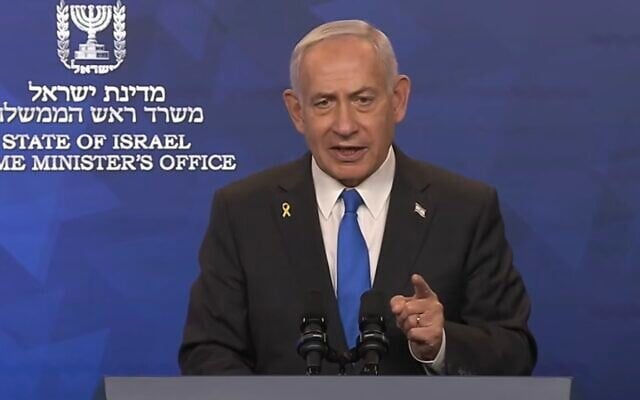
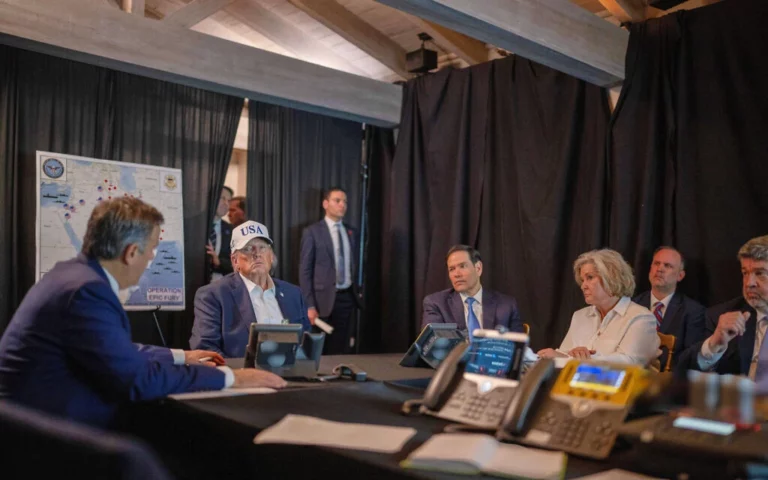
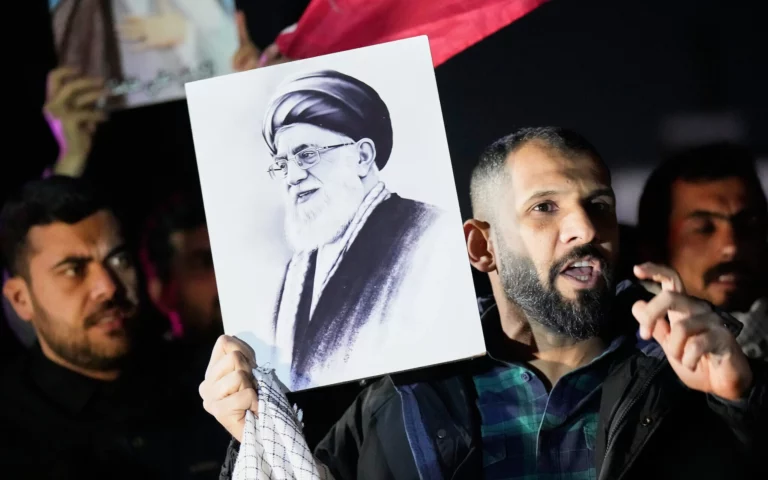


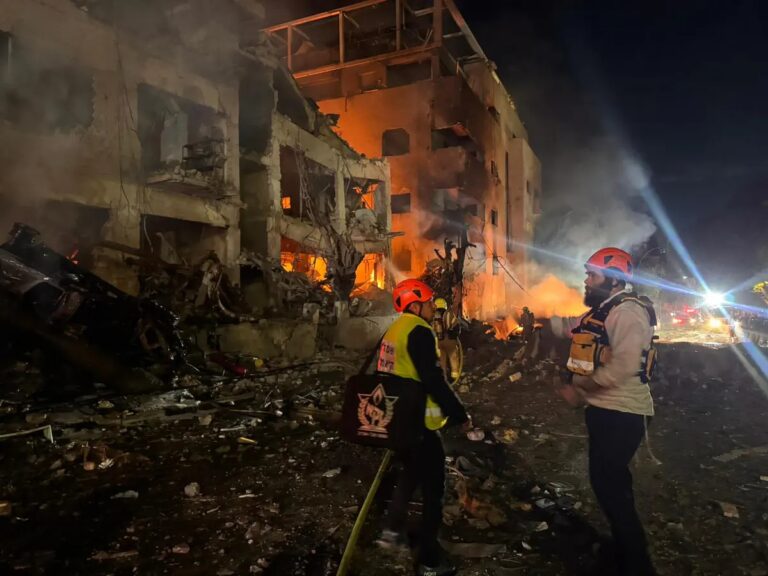
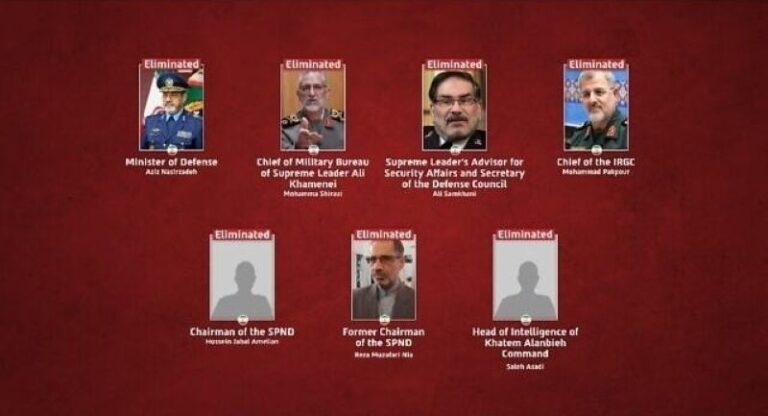
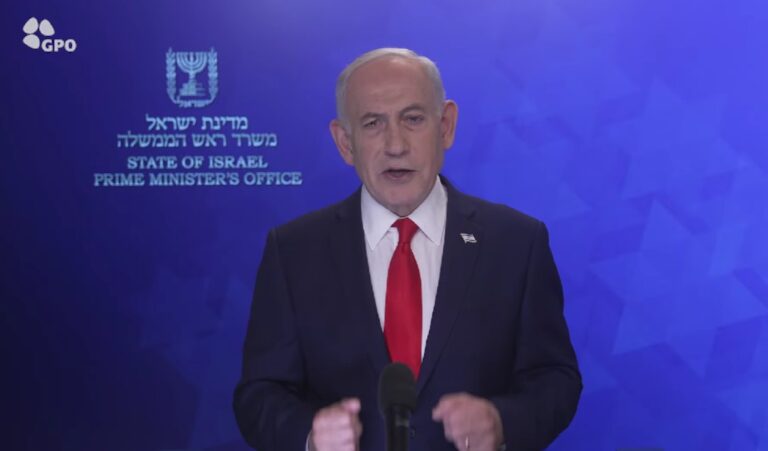

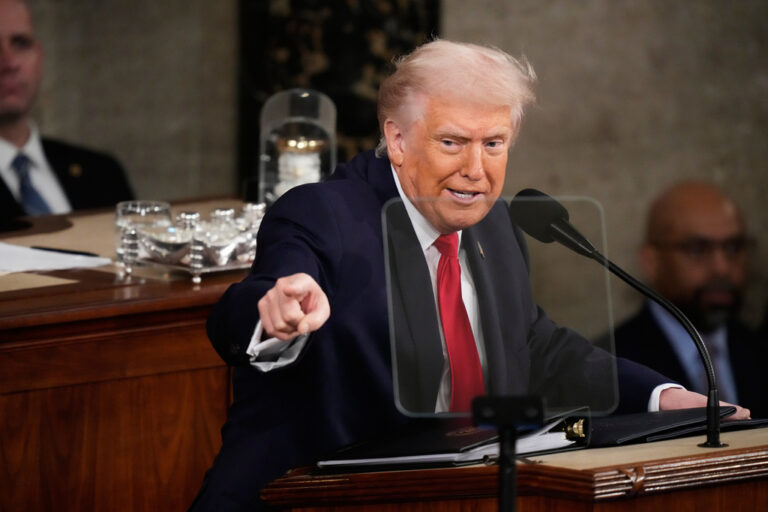
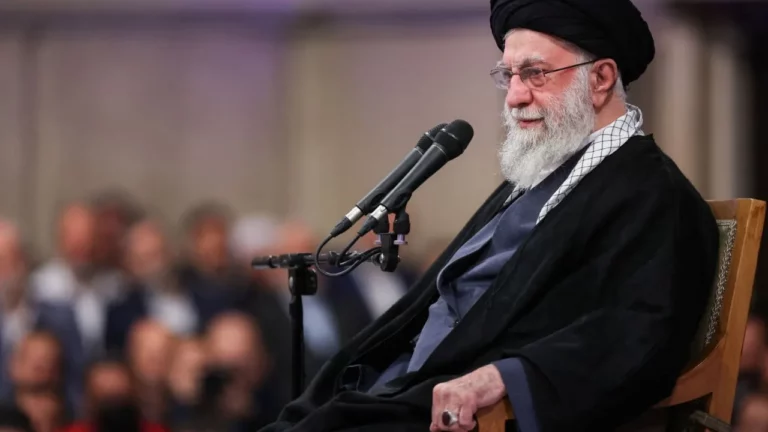
3 Responses
Stop kidding yourself. Hamas won.
And Trump made it happen.
I think Hamas won.